EU : EU - 1 : 1
Ralitsa Kovacheva, June 22, 2010
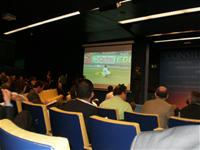 While we were waiting for EU leaders to appear for the final press conference at the Council, some smart guy from the administration of the building switched the football match between Greece and Nigeria on the large screens in the room. Just in time to see Greece scoring. It is impressive that there is no great joy among the journalists either because of a hard working day, or because of the problems that Greece has brought to its partners. Much enthusiastically the equalizing goal of Nigeria is being welcomed. Journalists, however, are already angry, especially the cameramen, who would lift their cameras and stand in position, with every movement of the security guards. And so was several times. Someone even jokes, that EU leaders are also watching the match and the press conference will begin when the game is over.
While we were waiting for EU leaders to appear for the final press conference at the Council, some smart guy from the administration of the building switched the football match between Greece and Nigeria on the large screens in the room. Just in time to see Greece scoring. It is impressive that there is no great joy among the journalists either because of a hard working day, or because of the problems that Greece has brought to its partners. Much enthusiastically the equalizing goal of Nigeria is being welcomed. Journalists, however, are already angry, especially the cameramen, who would lift their cameras and stand in position, with every movement of the security guards. And so was several times. Someone even jokes, that EU leaders are also watching the match and the press conference will begin when the game is over.
And maybe he is not far from the truth, because the world championship certainly had been discussed at the table. In his opening statement the President of the European Council Herman Van Rompuy promised to keep his guests informed of the results. A source from the Council told reporters that the Spanish Prime Minister Jose Luis Zapatero had complained for the loss of Spain from Switzerland the day before.
When they finally appear, the three EU leaders – the President of the European 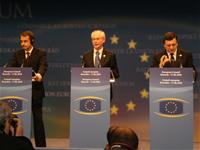 Council Herman van Rompuy, the chairman of the rotating Spanish presidency Zapatero and the President of the European Commission Jose Manuel Barroso, look exactly like after an exhausting football game. The assessments of the three are that the Council was extremely useful. And informally – that there hadn’t been such a hard Council for long time ago.
Council Herman van Rompuy, the chairman of the rotating Spanish presidency Zapatero and the President of the European Commission Jose Manuel Barroso, look exactly like after an exhausting football game. The assessments of the three are that the Council was extremely useful. And informally – that there hadn’t been such a hard Council for long time ago.
From internal sources earlier in the day journalists learned that the financial regulation and a peer review of the budgets had been the most controversial topic. The situation in Spain was not being discussed, nor were commented the problems of individual countries. However, the briefing started with a news - direct shot to the markets: “the results of ongoing stress tests by banking supervisors will be disclosed at the latest in the second half of July”. A step, for which analysts have been calling for long time and which European politicians lacked the will to undertake. Now, however, pressed by the Greek crisis and the rumors of a Spanish "Episode 2", the leaders reached a consensus.
As well as on the other controversial issue: the European Council agreed that Member States should introduce systems of levies and taxes on financial institutions as part of a network of resolution funds, proposed by the European Commission. (The Czech Republic reserves its right not to introduce these measures) Moreover, on the forthcoming G20 meeting in Toronto the EU will propose the possibility of imposing a financial transaction tax to be explored. The Council calls the existing proposals in terms of financial regulation to be quickly approved and the European Commission to submit such on derivatives markets, short sellings and CDS. The ambition is the work in this area to be completed by end of next year.
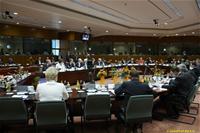 With regard to budgetary discipline, however, despite the agreement about general principles, the key details are yet to be clarified. For example, in the context of the "European semester" it is noted, that from 2011 onwards, member states will have to present to the Commission in the spring Stability and Convergence Programmes for the upcoming years, “taking account of national budgetary procedures”. From the draft of the Conclusions, that appeared earlier in some media, the part "including budgetary plans” has dropped out. The explanation is in the resistance of some countries led by Great Britain to submit their budgets first to Brussels and then to national parliaments.
With regard to budgetary discipline, however, despite the agreement about general principles, the key details are yet to be clarified. For example, in the context of the "European semester" it is noted, that from 2011 onwards, member states will have to present to the Commission in the spring Stability and Convergence Programmes for the upcoming years, “taking account of national budgetary procedures”. From the draft of the Conclusions, that appeared earlier in some media, the part "including budgetary plans” has dropped out. The explanation is in the resistance of some countries led by Great Britain to submit their budgets first to Brussels and then to national parliaments.
With regard to the sanctions, the document does not specify exactly what these will be, but it makes the statement that the “particular situation of euro area Member States” will be taken into account. This sentence also meets the calls, mostly from Britain, if there are any sanctions, these to be imposed only on the euro area countries. The question is whether this "relaxed regime" will have mechanisms to impact all member states and how exactly the sanctions and the conditions for their imposure will be formulated. Particular attention will be paid now on the countries' debt, rather than only on deficits. Moreover - not only public debts, but also private ones, in terms of “overall sustainability”.
Regarding macroeconomic surveillance, “a scoreboard to better assess competitiveness developments and imbalances and allow for an early detection of unsustainable or dangerous trends”. An also “an effective surveillance framework, reflecting the particular situation of euro area Member States” will be developed.
Quite impressive is the lack of separate rules for the euro area, at the expense of frequent indication about the "particular situation" there. This confirms the position of common governance and common decisions for all 27 member states, despite the insistence of France for a separate "economic governance" of the euro area. Herman Van Rompuy himself highlighted, that the EU does not need new institutions and meetings of the leaders of the eurozone members would not be institutionalized and would be held only when necessary.
More clarity on these decisions, and the final framework of the financial regulation and economic governance, are expected at the Council in October. Then the Task-force, headed by President Van Rompuy, will present its final report. The results of this Council may not look exactly a break, but obviously it was a difficult compromise. The fatigue was visible on the faces of EU leaders and even the President of the European Commission Jose Manuel Barroso seemed to had lost his usual vigour. He did not even boast, as expected, that the leaders had supported the original objectives in his favorite Europe 2020 Strategy.
According to the football logic, we can describe the Council as a match in a catenaccio 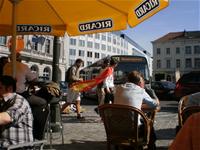 style, ending with a difficult draw of 1 between European goals and national interests. A game, in which both teams have chosen to play it safe and catch the "tamed" with the idea, that everything will be decided in the return game - the Council in October. Not by accident, it has been moved earlier (instead of December), in order to secure enough time its decisions to be implemented and enter into force as of next year.
style, ending with a difficult draw of 1 between European goals and national interests. A game, in which both teams have chosen to play it safe and catch the "tamed" with the idea, that everything will be decided in the return game - the Council in October. Not by accident, it has been moved earlier (instead of December), in order to secure enough time its decisions to be implemented and enter into force as of next year.
Unlike football, however, the European Union cannot afford to go to penalty kicks. So the next months are crucial, in order to find common working solutions and the change to go on.
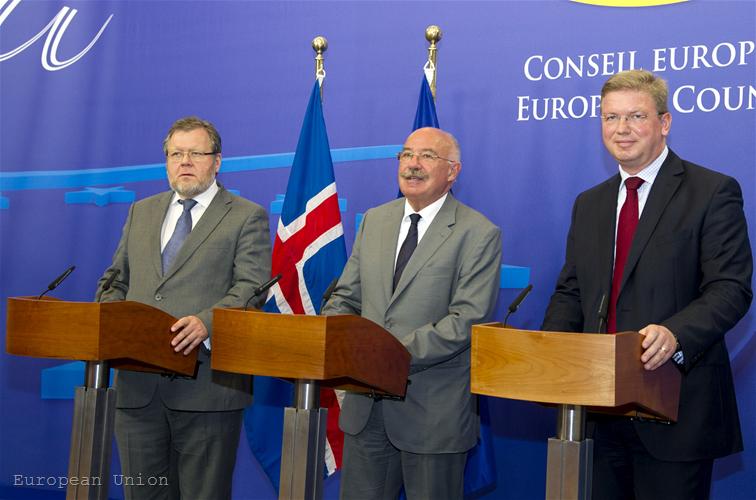 | © European Union
| © European Union | © Larus Karl Ingason
| © Larus Karl Ingason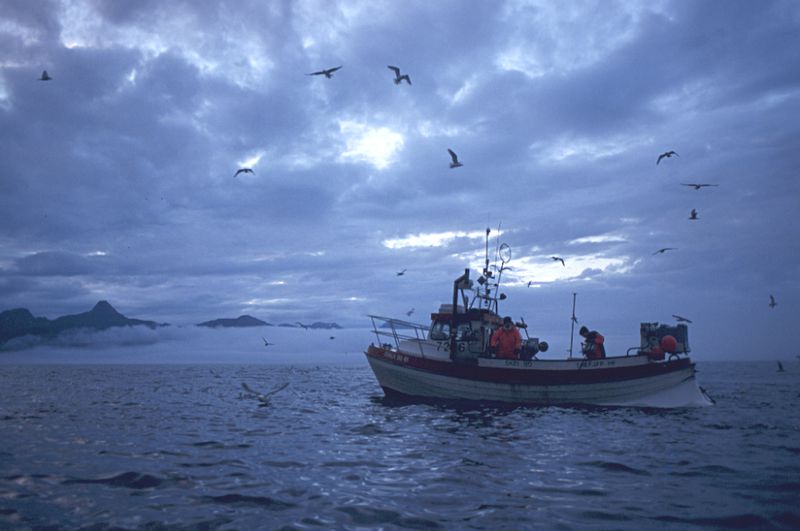 | © euinside
| © euinside